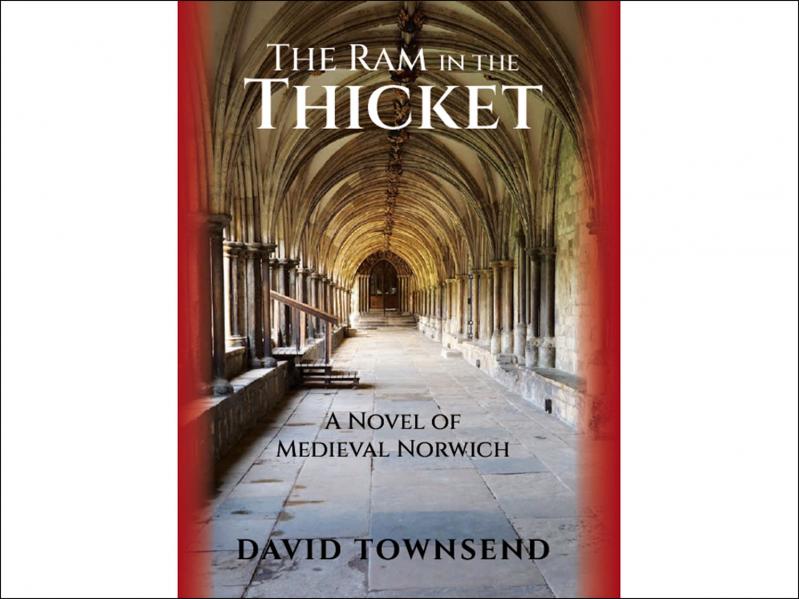My friend Gerhard has repeatedly shared his unease with the enterprise of historical fiction. If it doesn’t allow him to sort out what we know from what a novelist has made up, what solid ground does the reader have to stand on?
Starting out to write a historical novel 25 years ago — an academic’s response to midlife crisis, cheaper than a Porsche, less embarrassing than a bad perm — I began with scruples not all that far from Gerhard’s. It was okay to fill gaps in the historical record; it was not okay to fly in the face of established fact.
Every writer of historical fiction has to negotiate the line between evidence and invention, as does every thoughtful reader. What’s changed since I first drafted my book is a current U.S. government engaged, even as you read this, in the rewriting of American history to advance its own agenda, and to suppress narratives that speak meaningfully to the truth of countless American lives. My friend’s scruples are no longer a matter of disinterested preference for accurate information over entertainment. They’re about the ethics of remembrance, and our obligations to those long gone.
But amid new urgency around questions of historical truth, it’s salutary not to succumb to an oversimplified defense of history’s objectivity, as though the teller’s own investment in the historical record were a liability. As a retired professor of medieval literature, I can’t help but nerd out by observing that the Latin meaning of “data” is “things that are given.” The raw elements, in other words, out of which history is made. A “fact,” by contrast, from the Latin “factum,” is something you actively make out of the data.
History is never an objective description of How Things Really Were. History is a human science and art. It always, and inevitably, conveys the values of the historian. We need to recognize this, as part of any opposition we might mount to the cultural erasures that the Trump administration is now perpetrating.
History worthy of the name isn’t about just rattling off the data: “In this year the Northmen came and harried the countryside.” History worthy of the name is “thick description” of what human experience was really like. But figuring out what it was really like requires the faculty of human imagination, invested as it always is with the perspectives and values of the teller. The phrase “thick description” goes back to an essay by the anthropologist Clifford Geertz, who was exploring the layered meanings of a Balinese social ritual — meanings that you can’t reduce to a singularity.
Imagination isn’t the enemy of historical truth. It’s an essential mode of human cognition. In opposing the cancellation of progressive history, it’s essential to remember that defending the truth of history entails fighting unapologetically for our own values. This is why we need historical fiction as much as we need academic history. It’s why Toni Morrison’s “Beloved” — now banned from many libraries and schools — is as essential to our understanding of American slavery as are the business ledgers of a 19th-century Southern planter. Or more so.
My own novel, finally published after an impossibly long gestation, hardly bears directly on the religious and social realities of the United States in 2025. It’s about two remarkable medieval women whom we know “for a fact” met in the city of Norwich, England, in 1413. And yet, because this is my telling, of course it carries the mark of my own present-day investments in the story.
In 1373, a 30-year-old woman had a near-death experience. The account she wrote down is the first book in the English language that we know for sure was written by a woman. We know her now as Julian of Norwich. Margery Kempe was 30 years her junior. Margery’s “as told to” autobiography was recorded by an anonymous priest. It too is a staple of feminist medieval literature. Margery was the Tammy Faye Baker of her day. She fell down wailing in churches at the sight of the crucifix. “Madam, Jesus is long since dead,” an exasperated priest once told her. She was repeatedly accused of heresy. Returning from a pilgrimage to Jerusalem, she was ditched by her companions in Venice. Eventually, she made it home.
What was it really like when Julian met Margery, in the middle of a prosperous, complex city, where rival factions were struggling for political and economic control? Where a thriving Jewish community had disappeared 120 years earlier but was still remembered? Where accusations of heresy could have potentially deadly consequences? I wrote “The Ram in the Thicket” to answer those questions for myself. In doing so, I brought my own values and concerns to bear. What other choice did I have?
“Polarized political groups vie for power,” as my friend Rabbi Jan Uhrbach summarized my book. “Religious leaders push for harshly intolerant rules. Lies and ‘cancellation’ hound those who don’t fit in. A small minority suffering from inherited trauma are especially targeted. A charismatic outsider spreads conspiracy theories. A wise woman with influence but no power fights to do damage control behind the scenes.”
“Sound familiar? Welcome to Norwich, 1413.”
David Townsend, an Amagansett resident, will talk about his writing and read from his novel at Christ Episcopal Church in Sag Harbor at 5 p.m. on Sunday, Sept. 7, co-sponsored by Gesher — the Bridge Shul and Canio’s Cultural Cafe.

